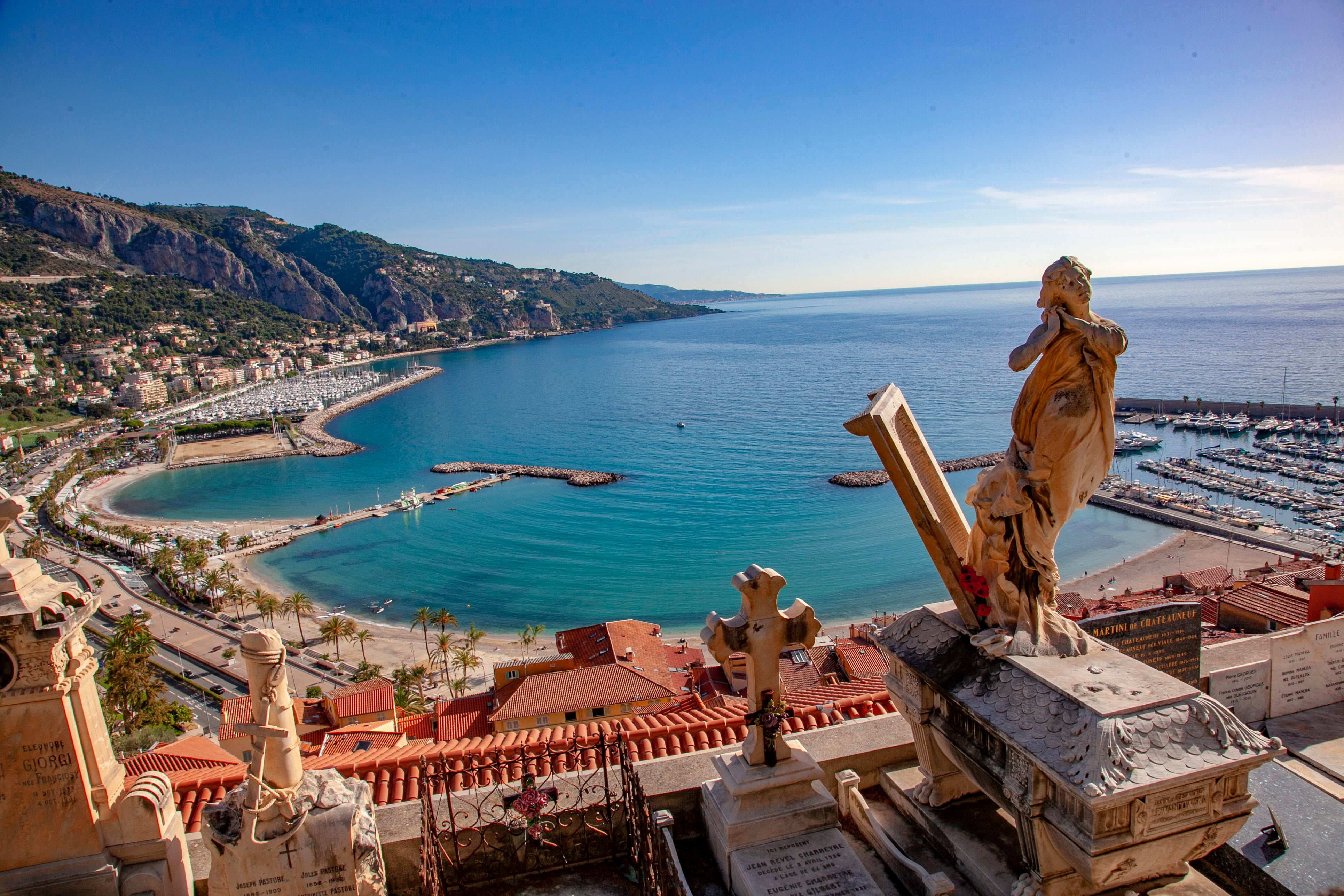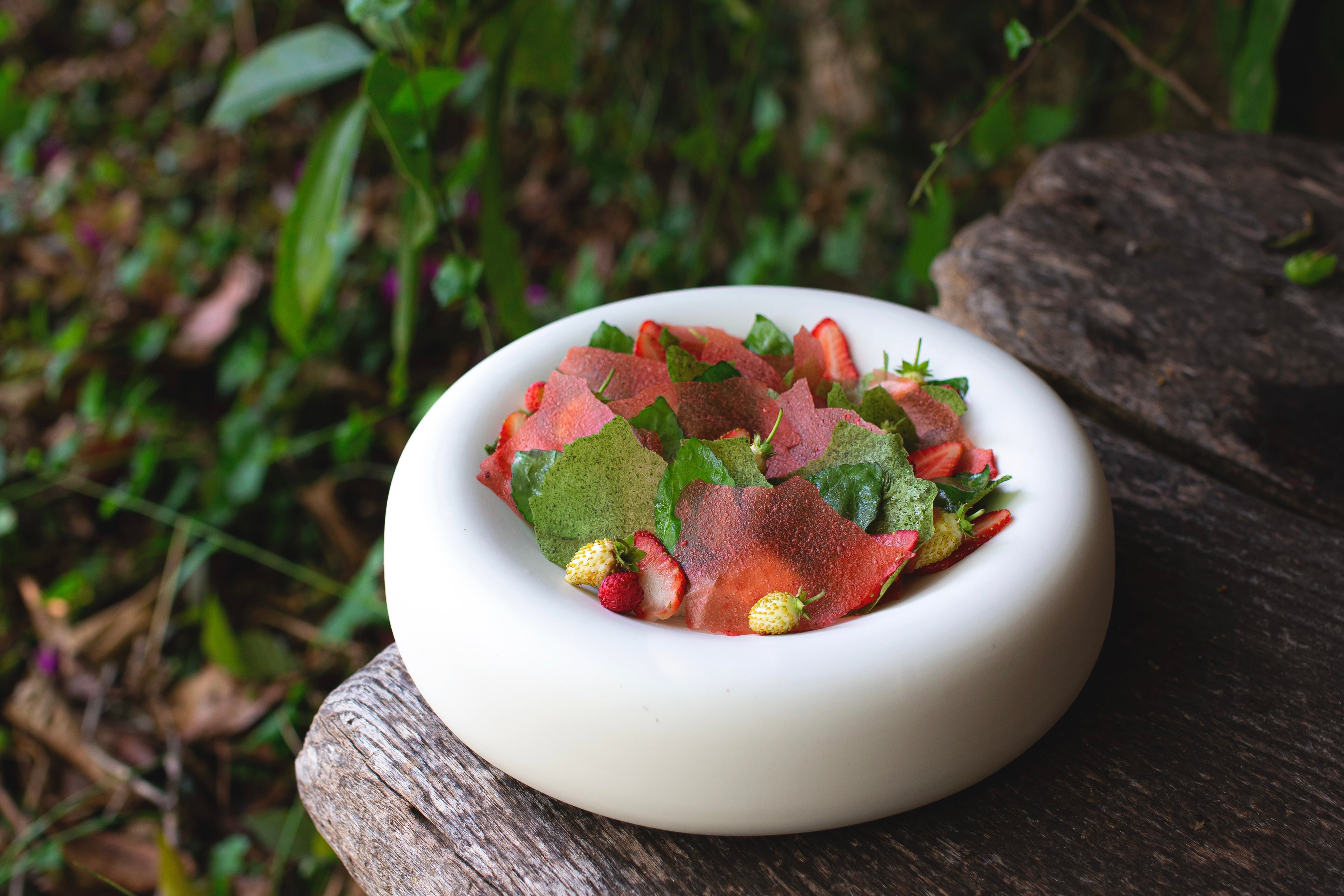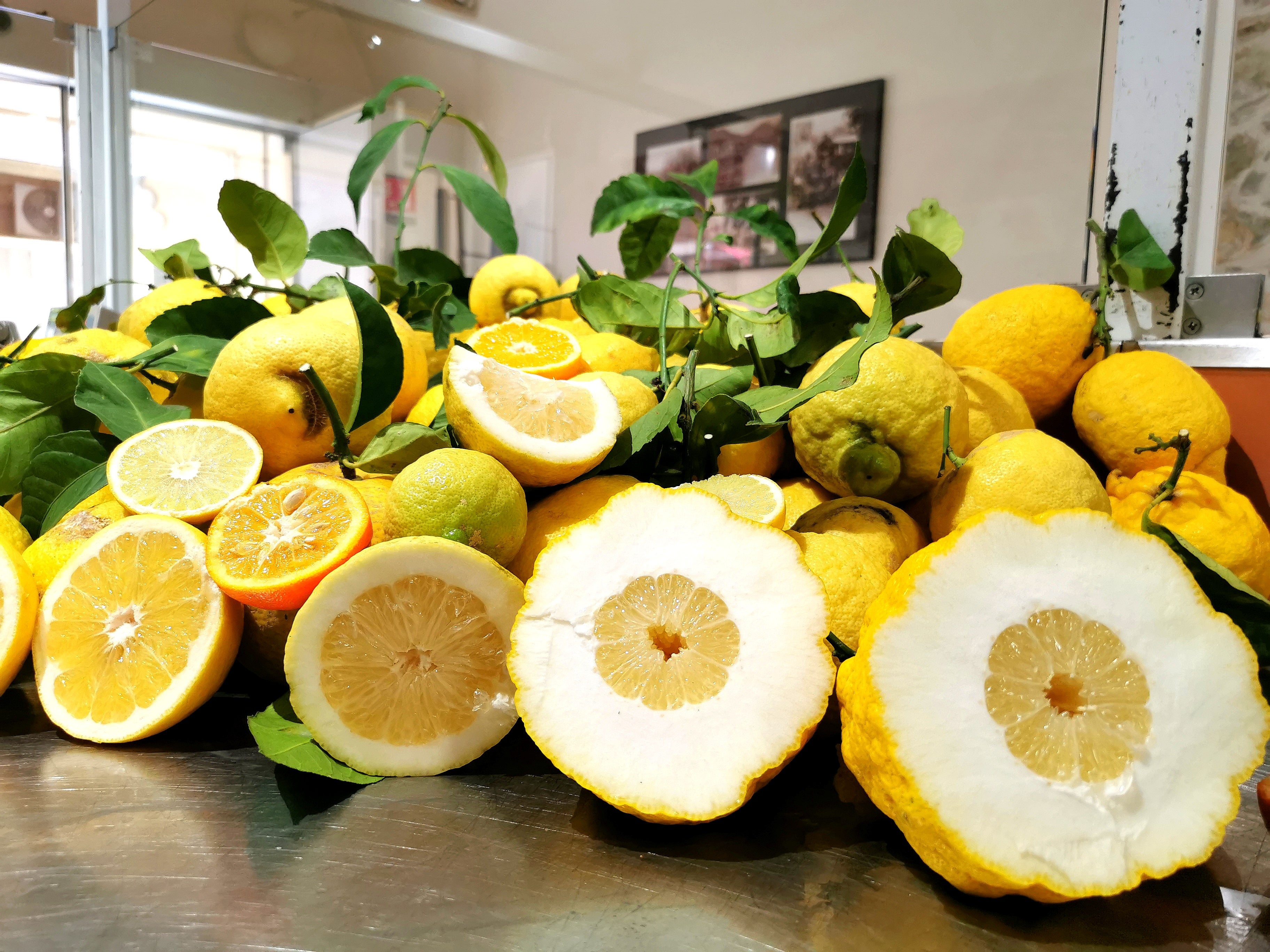The Independent's journalism is supported by our readers. When you purchase through links on our site, we may earn commission.
Marvellous Menton: The French border town where rugby, fine dining and lemons meet
As France gears up to host the Rugby World Cup, Chrissie McClatchie explores the fascinating Riviera town where the sport’s inventor was laid to rest, and finds a destination full of youthful swagger, Michelin-starred restaurants and a rediscovered, citrus-inspired zest

In 1859, gripped by consumption, a British physician called James Henry Bennet packed his suitcases for one final journey. His destination was Menton, the last huff of France before Italy. “I wrapped my robes around me, and departed southwards … to die in a quiet corner, as I and my friends thought,” he would later write. To his, and his friends, great surprise, “under its genial sky, freed from the labours and anxieties of my former life … I soon began to rally”.
The term Côte d’Azur had yet to be coined (that would come two decades later under the pen of French author Stephen Liégard), but, inspired by Bennet’s account of his recovery, Winter and Spring on the Shores of the Mediterranean, other Brits flocked to the delightful border town to heal their ailments. Among them, the man credited with inventing rugby, William Webb Ellis. Alas, for Webb Ellis at least, Menton’s mild climate wasn’t the miracle cure he had come in search of. Six months after his arrival, in January 1872, he succumbed to what is widely believed to be tuberculosis.
Webb Ellis rests in Menton’s lofty Cimetière du Vieux Château, in a modest grave high above a sea that glimmers under the gaze of the southern French sun. The site has become a pilgrimage for fans of the sport, who come bearing treasured rugby balls to leave alongside freshly cut flowers as tokens of gratitude. In the leadup to a Rugby World Cup in France, it’s even more of a focal point.

Had you visited Menton back in 2007, when the country last hosted the tournament, you would have noted an ageing demographic sunning themselves along the palm-fringed waterfront. The advent of antibiotics quickly replaced doctors’ prescriptions for a dose of winter sunshine, yet Menton’s reputation as the retirement home of France long endured.
Today, on the eve of the opening match between the host nation and New Zealand, the town has a fresh swagger to its step. Come weekends, the cafés of Les Sablettes, a lively beachfront esplanade, buzz with young families and groups of friends, many who have made Menton home to be within an easy commute of nearby Monaco.
Much of this new groove can be credited to one person: Mauro Colagreco, whose three-Michelin star restaurant Mirazur has put Menton firmly on the culinary map. Set inside a gorgeous 1930s rotunda just footsteps from the Italian border, the celebrated Argentinian chef’s delicate €450 (£387) tasting menu is aligned with the lunar cycle and served with a side of superb views back towards the pastel-washed old town.

Many elements of the Mirazur menu are plucked from Colagreco’s own produce patch just a couple of hundred metres down the road. Amid the ruins of the once royal residence of Belgium’s King Albert I, the garden bursts with passionfruit flowers, pumpkins curled around once grand colonnades and hanging courgettes swaying in the gentle breeze, depending on the season.
Menton’s mountain-meets-sea landscape is Colagreco’s muse and, as a love letter to his adopted home, he continues to feed its food scene. Mirazur has been joined by a clutch of newer openings that share its hyper local and seasonal ethos, yet are geared towards relaxed dining at affordable prices.
Families flock to Pecora Negra, Colagreco’s bright, casual pizzeria along Les Sablettes, so kids can skate and scoot on the boardwalk while adults linger over wood-fired Neapolitan style pizzas topped with ingredients from the region. Couples cosy up over flame grilled French cuts of meat cooked to Argentine tradition at Casa Fuego, his sultry date night favourite across the road from Mirazur. For early risers, meanwhile, Mitron Bakery does a roaring trade in organic breads made from heritage grains, while the cute hand-drawn lemons on the window give away its sweet speciality: tarte aux citrons (lemon tart).
Menton’s mountain-meets-sea landscape is Colagreco’s muse and, as a love letter to his adopted home, he continues to feed its food scene
In fact, it’s also thanks to the humble lemon that Menton has rediscovered its zest. Grown here since the Middle Ages, the Citron de Menton, as the local variety is called, was once the yellow gold that powered the town’s economy. At its peak, around the time Webb Ellis, Bennet and co. were in residence, each fruit would be wrapped in a protective sheen of silk before being shipped off to foreign markets as far away as North America.
In the mid-20th century, the crop fell victim to the dual threats of urbanisation and hot summers. Save for a few backyard gardeners, and a boisterous Fête du Citron festival that has been held every February since 1934, Menton’s lemons appeared confined to the pages of history.
Now, a new chapter is being written by local growers passionate about tradition and the crop’s characteristic thick skin and slight sweetness. The terraced landscape is once again awash with the glow of lemon groves. And this renaissance is spilling over into the covered markets and boutiques along rue St Michel, the pedestrian shopping street. Along with limoncello everywhere you look, made-in-Menton souvenirs range from lemon chips at Maison Gannac to fresh ravioli filled with lemon at Pasta Piemonte.

No citrus-flavoured experience, however, beats the pleasure of tasting one picked straight from the tree and sliced directly before your eyes at La Ferme des Citrons. Hidden in hilly folds just 10 minutes from the waterfront, road access is so steep that the property shuttles people back and forth in its classic Land Rover Defender.
Amid the terraces of sprawling avocado plants, mature olive trees and bulging lemon groves lies a shaded picnic area where, as part of its picnique à la ferme daily tour, visitors snack on regional specialities such as pan bagnat (tuna salad sandwich) and barbajuan (fried ravioli) washed down with lemon squash and lemon-infused Menton craft beer.
And it’s here you realise that those early travellers were spot on. Menton really is the best form of medicine.
Travel Essentials
Getting there
Travelling flight-free
You can reach the south of France in a day by catching the Eurostar to Paris, changing to the Gare de Lyon and catching a TGV train to Nice. Menton is a 30-minute train from there.
Travelling by air
British Airways and easyJet fly from multiple cities in the UK to Nice Côte d’Azur Airport year round. Menton is a 30 minute drive away.
Staying there
The three-star Best Western Hôtel Méditerranée enjoys a prime location with Les Sablettes and rue St Michel within easy walking distance. The rooftop bar has mountain and sea views; many of the bright, modern rooms have private balconies.
Join our commenting forum
Join thought-provoking conversations, follow other Independent readers and see their replies
Comments
Bookmark popover
Removed from bookmarks